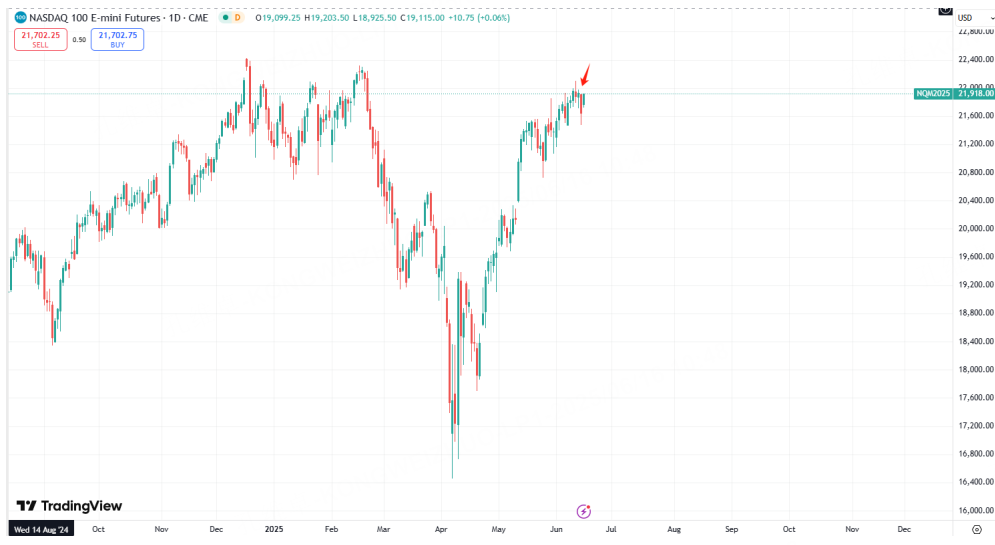Will the Iran-Israel Conflict Spur Further Oil Price Gains?
While the market eagerly anticipates developments in US-China negotiations and tariff issues, Israel has once again stirred the scene. Sensitive geopolitical factors have made oil prices last week’s biggest winner, as prices quickly rebounded above $65 and began to climb toward $80, approaching the median price range that prevailed during the Biden administration. How the Israel-Iran situation unfolds will introduce significant uncertainty for oil prices and other markets, which have so far remained relatively calm.
According to JPMorgan, in the worst-case scenario where the Strait of Hormuz is closed, oil prices could surge to $120 per barrel, though this remains relatively unlikely at present. The bank also believes the fair value for US crude is in the $60–$65 range, as persistently high oil prices will drive up inflation. I also see this as a critical point, since it will affect the Federal Reserve’s rate decisions and other policies under Trump. If this logic holds, Israel is likely to continue testing limits without fully provoking Iran, essentially following the guidance of the US, its “big brother.” If no major new developments occur, current market trends are likely to gradually stabilize over time—a relatively probable outcome.
Alternatively, a scenario where Iran launches a full-scale counterattack and faces the risk of regime overthrow is less likely, given Iran’s internal situation and the age of its leaders.
Based on the above, last year’s “value mean reversion” strategy might again be applicable: go short if prices break above the 84 level, setting a stop loss above 95; cover shorts or consider going long if prices retreat to the 65/70 range, with a stop loss at any new lows.
Another reason I am not overly concerned about a further worsening situation comes from observations in other markets. For example, although gold jumped quickly on the news, it had already shown signs of stabilizing before the conflict, and the actual rally after the news was not particularly strong. US Treasury yields also rose, but only as part of a rebound, while the Japanese yen performed even more weakly—implying that the market does not perceive a strong need for safe havens. Even the US stock indexes, which lost ground last Friday, recovered half of their losses intraday, and by Monday had already surpassed the pre-news levels, signaling that all is relatively calm.
Of course, just as Israel can deliver unexpected surprises, new shocks to the market may come from elsewhere, such as how Trump advances his tariff negotiations. Therefore, the stability of most risk assets will likely remain unaffected by the Israel-Iran issue, but this does not mean a new bull market is on the horizon. On the contrary, I tend to think the current rebound and high prices feel somewhat shaky, and it may be wise to take profits in a timely manner.
$WTI Crude Oil - main 2508(CLmain)$ $Brent Last Day Financial - main 2508(BZmain)$ $E-mini Nasdaq 100 - main 2509(NQmain)$ $E-mini S&P 500 - main 2509(ESmain)$ $E-mini Dow Jones - main 2509(YMmain)$ $Gold - main 2508(GCmain)$
Disclaimer: Investing carries risk. This is not financial advice. The above content should not be regarded as an offer, recommendation, or solicitation on acquiring or disposing of any financial products, any associated discussions, comments, or posts by author or other users should not be considered as such either. It is solely for general information purpose only, which does not consider your own investment objectives, financial situations or needs. TTM assumes no responsibility or warranty for the accuracy and completeness of the information, investors should do their own research and may seek professional advice before investing.
- catandbull·2025-06-18Interesting indeedLikeReport

